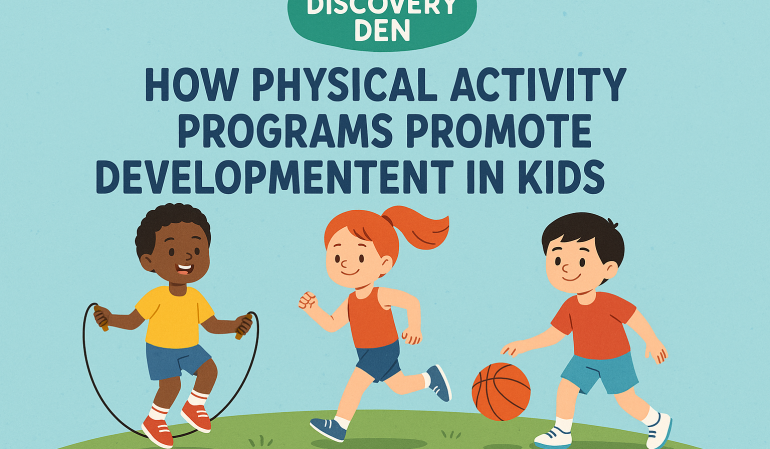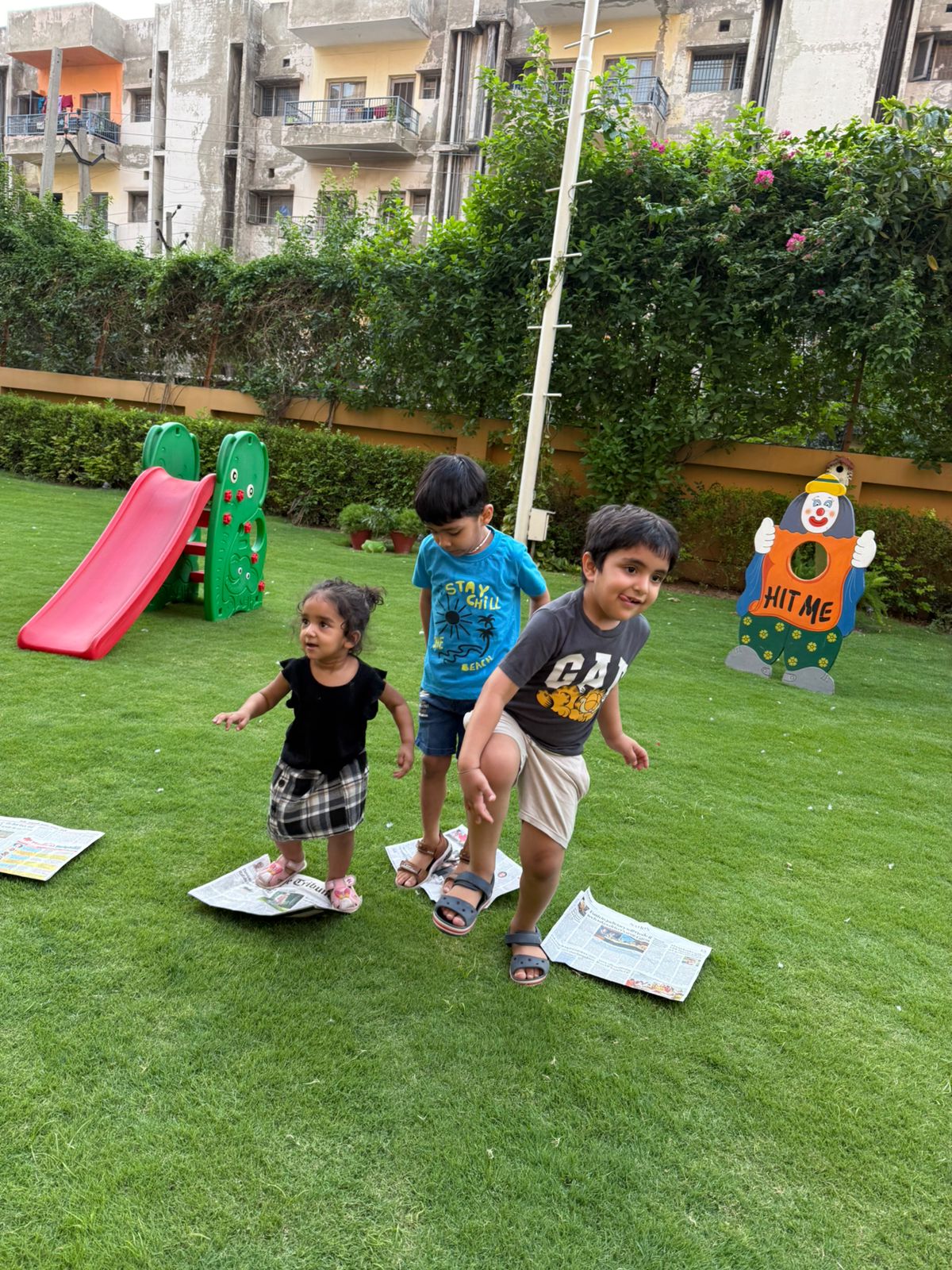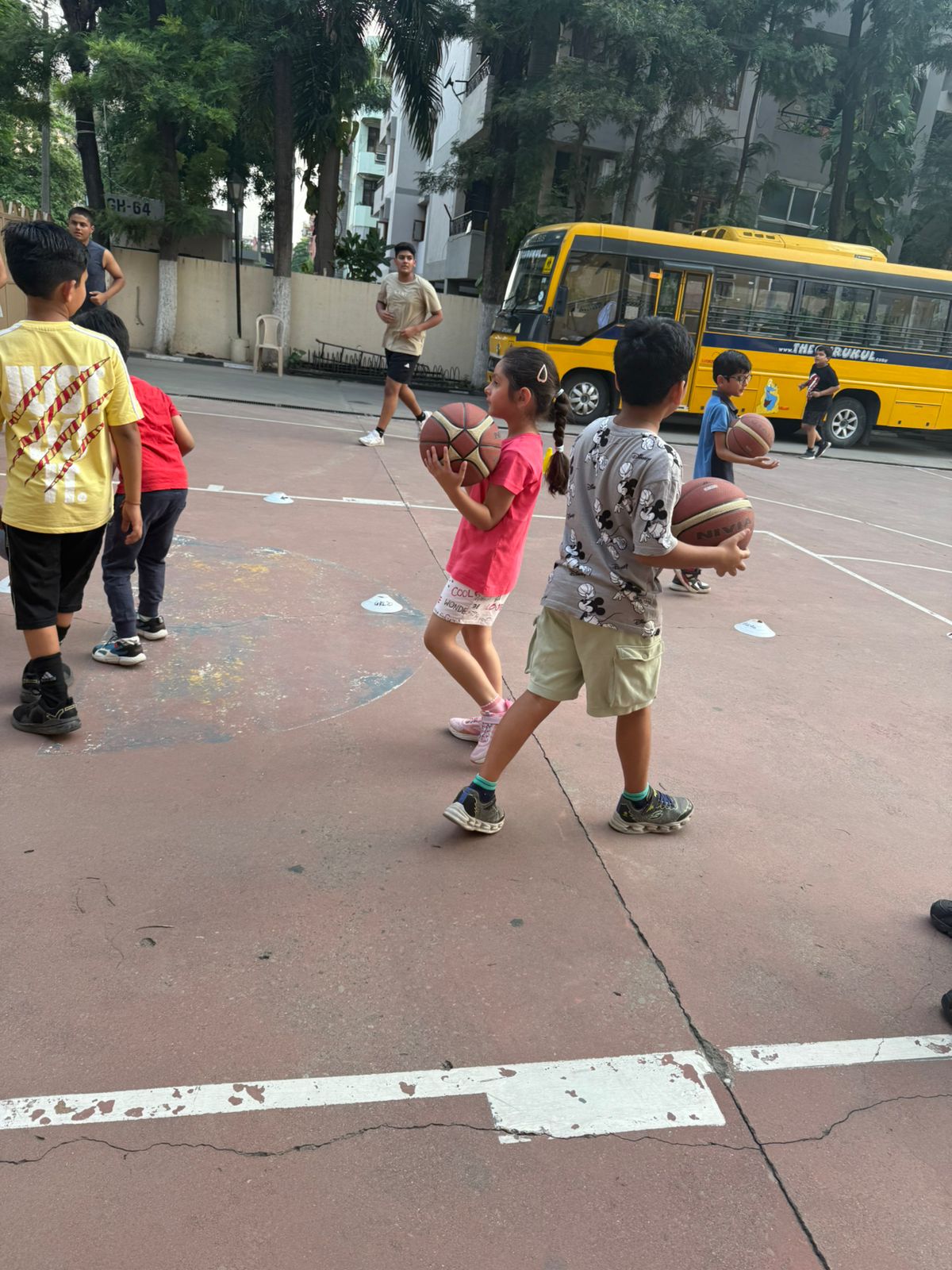
In addition to promoting physical health, physical activity is necessary key healthy mental attitudes. As children spend more and more time in computer screens which can cripple one’s body by old age, they still need to be moving around–exercising and play sports Out and moving about enables time for well-being of life skills development The aim of these programs is to help a child develop his own sense of well-being Proponents of after-school programs argue they offer, in addition to a structured social environment, opportunities to take part in new and fun physical activities which are important for now healthy growthIt was an article that revealed how physical activity programs can influence the overall development of children and why extra-curricular activities are an effective means to encourage a lifestyle of health.
The Role of Physical Activity in Children’s Development
Through infancy and childhood, the brains and bodies of children undergo astonishing change: physical activity is an essential part of these changes.
Enhancing Physical Health and Overall Wellness
Children’s physical wellness notably advances when participating in regular activity. Engaging in sports or games improves muscle and bone strength, whilst lowering risks linked to weighty illnesses. Exercise fortifies the heart and enhances how bodies utilize energy. Additionally, activity patterns aid sleep quality and immune defenses, meaning less days feeling unwell. Structured programs introduce youth to fitness concepts and healthy practices they can retain throughout their lives. Varied activities appeal to different interests and development levels. Whether running relays, climbing on playgrounds, or throwing Frisbees, children benefit greatly from time spent moving and playing outdoors.
Cognitive and Mental Benefits
Exercise is good for the body and the mind. Research has shown that kids who exercise regularly perform better in school. It improves memory, concentration and overall brain function, all of which make kids more focused and alert in class. Physical activities also decrease the symptoms of anxiety and depression that are associated with an increase in the production of endorphins – hormones that act as natural mood elevators. So physical activity programs help kids build resilience, cope with stress and feel happier.
Social Skills and Emotional Development
Active programs Give Children a chance to socialize with other kids and that is important for social abilities. Sports activities, group exercises and even leisure games, foster communication, cooperation and the spirit of working as a team. Through play, children also learn to take turns, pursue common goals, and cooperate, as well as resolve conflicts in socially acceptable ways. What’s more, exercise is a great way for children to gain self confidence. Kids build a sense of pride and Accomplishment as they master new skills — and when you display their artwork, you’ll all get a sense of pride every time you look at it!

After-School Programming: A Portal to Healthy Behavior
Activity for kids beyond the school day After-school programs for kids is the best way to keep kids interacted beyond school time. These programs provide more than just ways to keep kids entertained; they also give children a safe, structured space to continue learning and growing. After school programs Regularly scheduled after-school programs generally provide a mix of activities such as sports, dance, swimming and outdoor games, all aimed at keeping children active.
Combating Sedentary Lifestyles
In the digital age, today’s children spend hours sitting in front of screens — be it TV, video games or the computer. This sedentary behaviour is a rising concern as it is associated with childhood obesity and low mental well-being. After-school programs provide the antidote to this by motivating children to be physically active and enjoy more screen-free time. By incorporating active play into their regular schedule, after-school programs support children in building a passion for movement that can carry over into adulthood.
Building Healthy Habits Early On
Forming good habits early prepares one for a healthier adult life. Exercise programs, such as those made available through after-school programs, teach children to make exercise a regular part of their day. They get to try so many types of sports and activities and figure out what they enjoy and what they may do in the future. These programs also demonstrate to children the importance of setting goals and working toward them — be it to improve running pace or master a new dance routine.

Other after-school program benefits that extend beyond exercise
While exercise is the main focus of after-school programs, there are so many other benefits for a child that promote the growth of the child. Such programs provide kids with an outlet for creativity in arts, as well as learning environments and even academic enrichment. This is a way to raise a balanced child with strong intellectual, creative, and physical skills.
Academic Improvement
After school programs are a great addition to the regular school day. Most programs provide homework help, tutoring options and learning activities to further support children’s education outside the classroom. A holistic focus on exercise and academic enrichment, in combination, supports a strong foundation on both which can help increase grades and overall performance.
Safety and Supervision
After-school programs offer children a safe place to stay while their parents come to get them. They are run by professionals who make sure they are participating in safe, structured events. This adds further comfort for parents and provides a safe space for kids to try new things and meet new friends.
Social Connections and Peer Relationships
Having friends is an important part of growing up, and after-school programs offer a lot of occasions to make new acquaintances. More important, kids learn how to cooperate, share, and get along with others in a group setting. This also encourages them to become good communicators, skills that they will need throughout their professional and academic lives.
Tips for Selecting an After-School Program for Your Child
When you’re choosing an after-school program for there are a few important aspects to consider, so that it fits your child’s needs and interests perfectly.
- Activities: Can you choose activities to suit your kids’ tastes or are they all-physical, all-creative, or just all- academic? That way your child can try out new hobbies and still be active.
- Qualified staff: Make sure that those overseeing the program are qualified and trained individuals who understand child development, as well as the activity they are supervising.
- Safety Procedures: Make sure the program adheres to safety measurements and has proper supervision in activities.
- Location and Time: Ensure that the program is both convenient for you, transportation-wise, and that it fits into your daily schedule.
Frequently Asked Questions
Question: In what way can exercise help improve the mental health of children?
Answer: Endorphins that elevate the mood and decrease stress are released with physical activity. It’s an emotional outlet and is especially helpful for kids dealing with anxiety, depression, and other mental health issues.
Question: What are the best kids’ physical activities?
Answer: Swimming, soccer, basketball, dancing, riding bikes and playing outdoor games are all good activities for children. These things all develop motor skills, coordinatio, and the ability to perservere + all while being fun.
Question: How do after school programs assist child development?
Answer: Out-of-school programs help children to learn, interact with others their age, and acquire 21st century skills in a structured environment. They promote health and fitness, social skills, creativity, and academic development.
Question: Can afterschool programs help about academic success?
Answer: Yes! A lot of after-school programs also provide academic enrichment programs such as homework help and tutoring, that encourage better academic performance for a child.
Question: Are after-school programs safe?
Answer: As with schools, most after-school programs have trained staff who make it possible for kids to be all right. They’re trained to adhere to safety measures and stay close to children, watching out for them when they’re busily engaged in sculptures, costumes and imaginary play.
Question: When can children begin participating in after-school programs?
Answer: After school programs can also be put together for children aged five or six. But, the structure and activities will vary by program and what age the child is.
Conclusion
One of the greatest ways to encourage development is to establish physical activity as part of a child’s regular routine. There are also countless benefits, from better physical health to emotional well-being and even better social skills. Children have a lot to gain from attending after school programs Not only will they have a great opportunity to remain active, learn and develop new skills, but they can also develop lifelong positive habits. And by participating in these fun, structured after school activities, kids are not only getting physically stronger, they’re also growing emotionally, socially and academically. Equipped with the proper program your child can be active in both mind and body, leading to an overall healthy, successful life.

